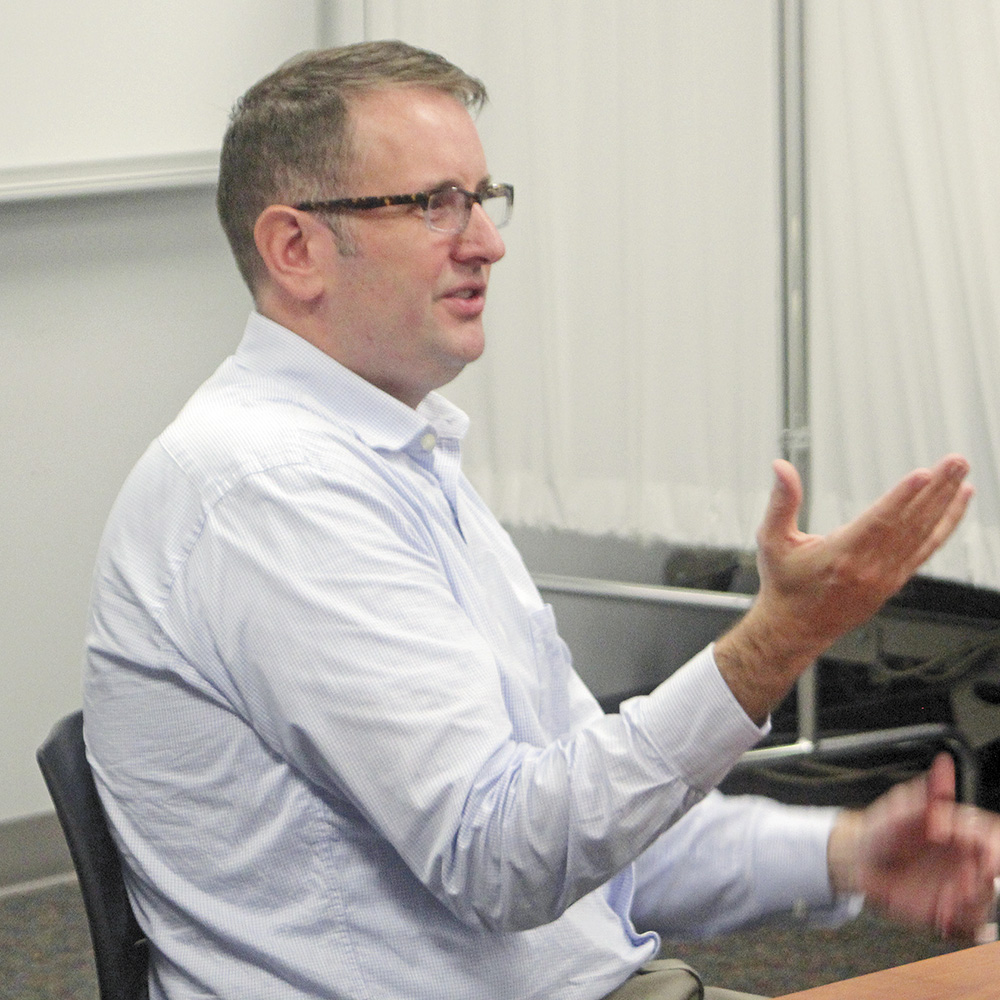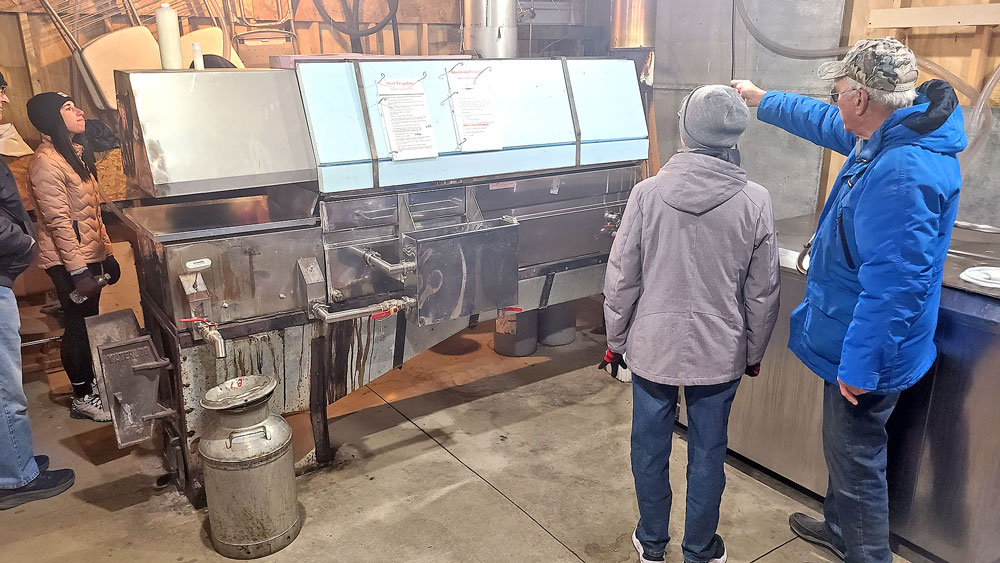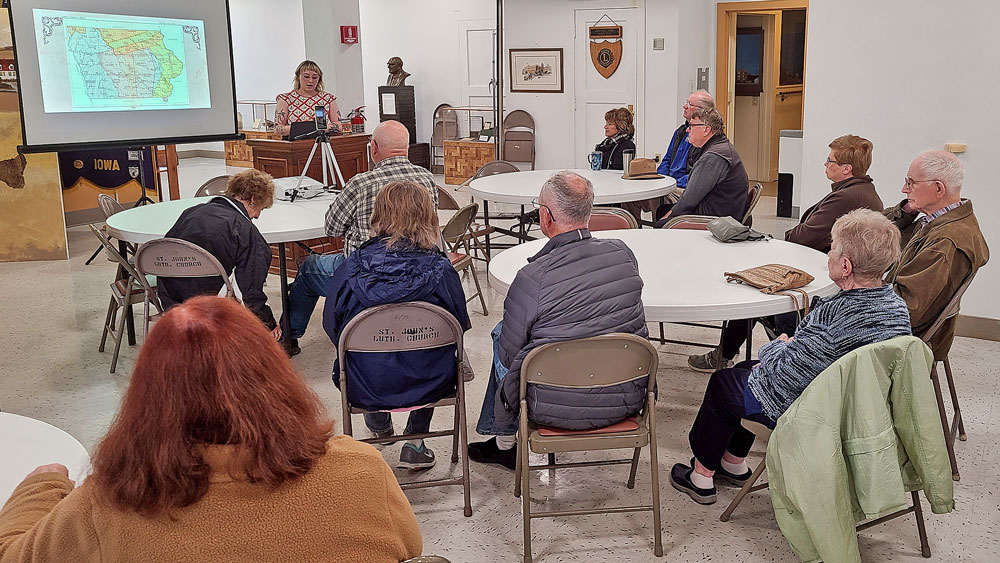Prichard talks education, health care with retired teachers
By James Grob, jgrob@charlescitypress.com
Rep. Todd Prichard was talking to a group of teachers Wednesday. You could tell by the kinds of questions they asked.
He might have felt like he was in a classroom.
“We’ve all dealt with children all of our lives, and one of the things we teach is compromise,” one teacher asked Prichard. “We’ve all heard about how everything is so polarized in the Legislature. You don’t talk to each other, Democrats and Republicans won’t have anything to do with one another. Is that really true, or not?”
Prichard, a Democrat from Charles City, has been a representative since 2013 and currently represents Iowa House District 52, covering Floyd, Chickasaw and part of Cerro Gordo county. He is running unopposed in the upcoming November election.
The event was a Q&A hosted by the Big 4 Unit of the Iowa Retired School Personnel Association (IRSPA) at the NIACC Center in Charles City. Iowa state Sen. Waylon Brown was also invited to the forum, but was unable to attend due to a family issue. Brown, a Republican from St. Ansgar, represents the 26th Iowa Senate District.
“When I first came into the Legislature, in 2013, it was split,” Prichard said to the teacher who’d asked the question about polarization. “Democrats held the Senate, Republicans controlled the House, where I was. It worked — the system really worked. I did not feel there were too many people who wouldn’t listen to an idea.”
Prichard said because of the split government, the parties were forced to compromise. He said that the bodies were able to find ways to get things done, because both sides knew they needed the other.
“If people could have seen how we were interacting in the halls of the capitol, they would have been pleased.”
He said, unfortunately, that’s no longer the case.
“Really, since the Republicans have taken control of both houses, you really saw a decrease in the number of bills that had bipartisan support, particularly major bills,” Prichard said. “The attitude became, ‘we can do this, because we don’t need your votes.’ Sometimes, the deadlock in Congress that forces compromise is good.”
IRSPA is an organization that is primarily concerned with issues significant to retired school personnel, such as IPERS and current health issues, and Prichard spent most of his time talking about education and health care.
When he was asked about the importance of funding educational programs, Prichard mentioned his wife, Ann, who works in the Charles City School district as a teacher of talented and gifted students.
“TAG teachers and special needs teachers do the good work to find these kids who need attention,” he said, and added that Iowa funds these programs, and when other states don’t, the programs disappear. The trend of short-changing public education in Iowa is one he’d like to reverse, he said.
“You find students where they’re at, whether they have special needs or exceptional needs, you find them and help them succeed.” he said. “That’s what I’m trying to do, and it’s what my colleagues are trying to do.
“We can’t do it without funding. And we can’t do it unless we attract more good people to the profession,” Prichard added. “That’s what’s been so frustrating, with the allowable growth (for Iowa public education funding) at 1.25 percent, it doesn’t even keep up with inflation. It’s cost Charles City hundreds of thousands of dollars, and it’s cost all of these school districts. It has punished rural school districts with declining enrollment.”
He said that education funding, or the lack thereof, becomes a “vicious cycle.”
“By and large, the 14 school districts that I represent, in my district, are losing enrollment. You lose enrollment, you lose dollars, and everything’s tied to your headcount,” he said. “And then, you can’t offer these enrichment programs like music and art, and all these other things that make the school district attractive, and then you continue to lose parents.”
Prichard said another issue he plans to address next session is the privatization of Medicaid in Iowa, something which he called “extremely frustrating.”
“I don’t think there was one person in the Legislature that knew what then Gov. Branstad was doing,” he said. “That was really bad.”
Prichard said that other states that have privatized with some success took four years, but Gov. Branstad wanted to get it done in just six months.
“He set it up for failure from the get-go,” Prichard said. “It’s a huge campaign issue in the governor’s race, and it ought to be, because people are getting left behind. It’s just wrong.”
He said that turning Medicaid over to out-of-state managed care associations has been the biggest reason for the failure.
“It’s been a disaster,” he said. “We used to have the Medicaid Enterprise, where people who represented the people of Iowa — not paid employees of a for-profit company — would say, ‘you need to provide this service for this patient, because this patient has this condition, and this service is warranted.’ They would at least try to be a fair broker for the people. That’s gone. Now the oversight is done by the companies, and they’re self-regulating. It’s the fox guarding the henhouse.”
Prichard said he’s heard hundreds of stories of patients not getting covered and of providers not getting paid.
“Some of these people are disabled, and they can’t file an appeal when they’re denied coverage, because they’re not physically able to,” he said, adding that rural health care providers and affiliates, in particular, don’t have the customer base to absorb losses and sustain themselves when coverage is denied, so they end up cutting services.
“We will change that in the House,” Prichard said. “That is definitely a priority.”
Prichard said that may be something that can get changed in the house even if Democrats don’t win back a majority.
“I’ve been glad to hear even some Republicans say they need to at least take some steps back,” he said. “We need honest broker oversight, and we need to return to a situation where there’s not an incentive to deny coverage, just because they can.”











Social Share